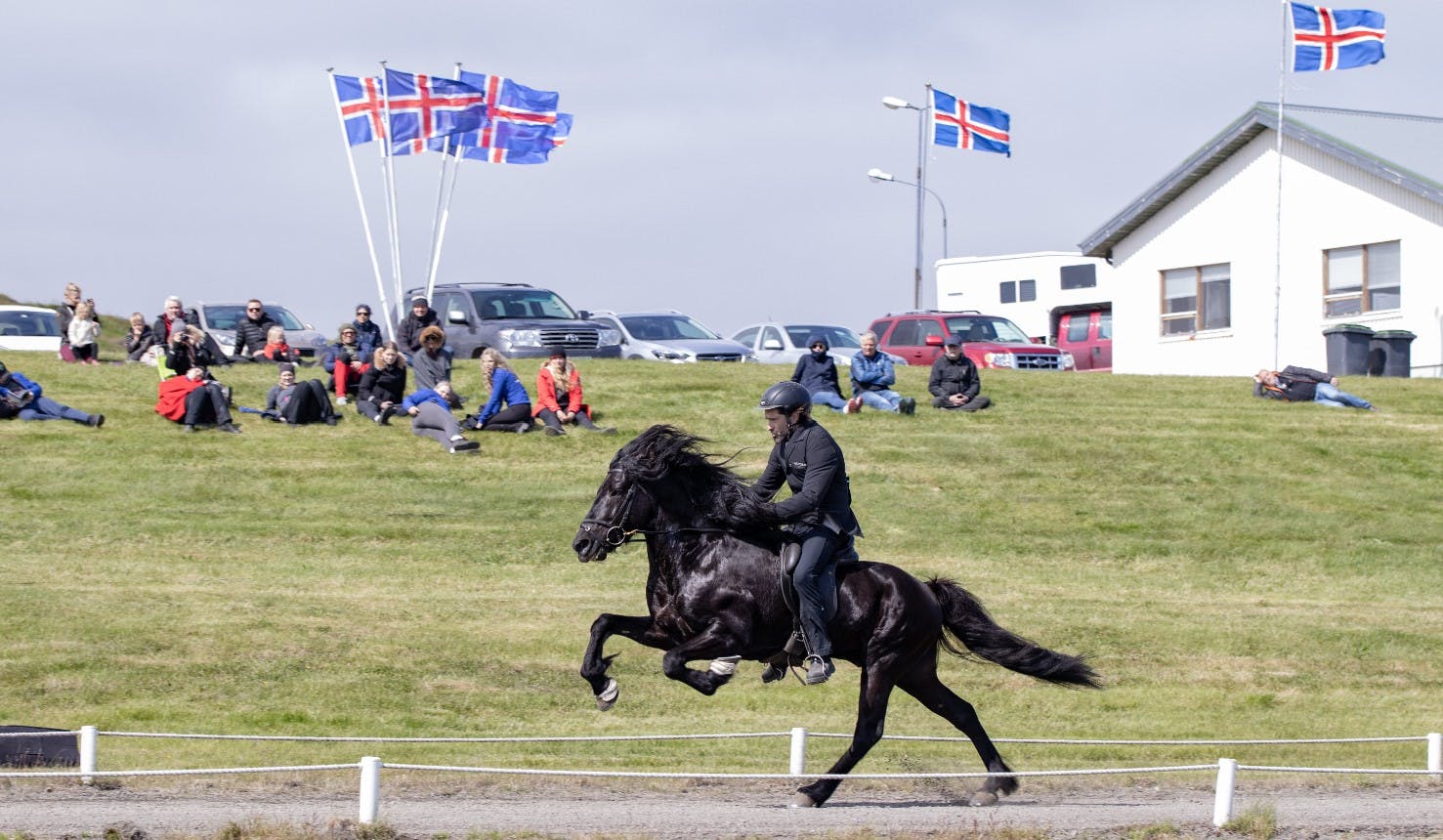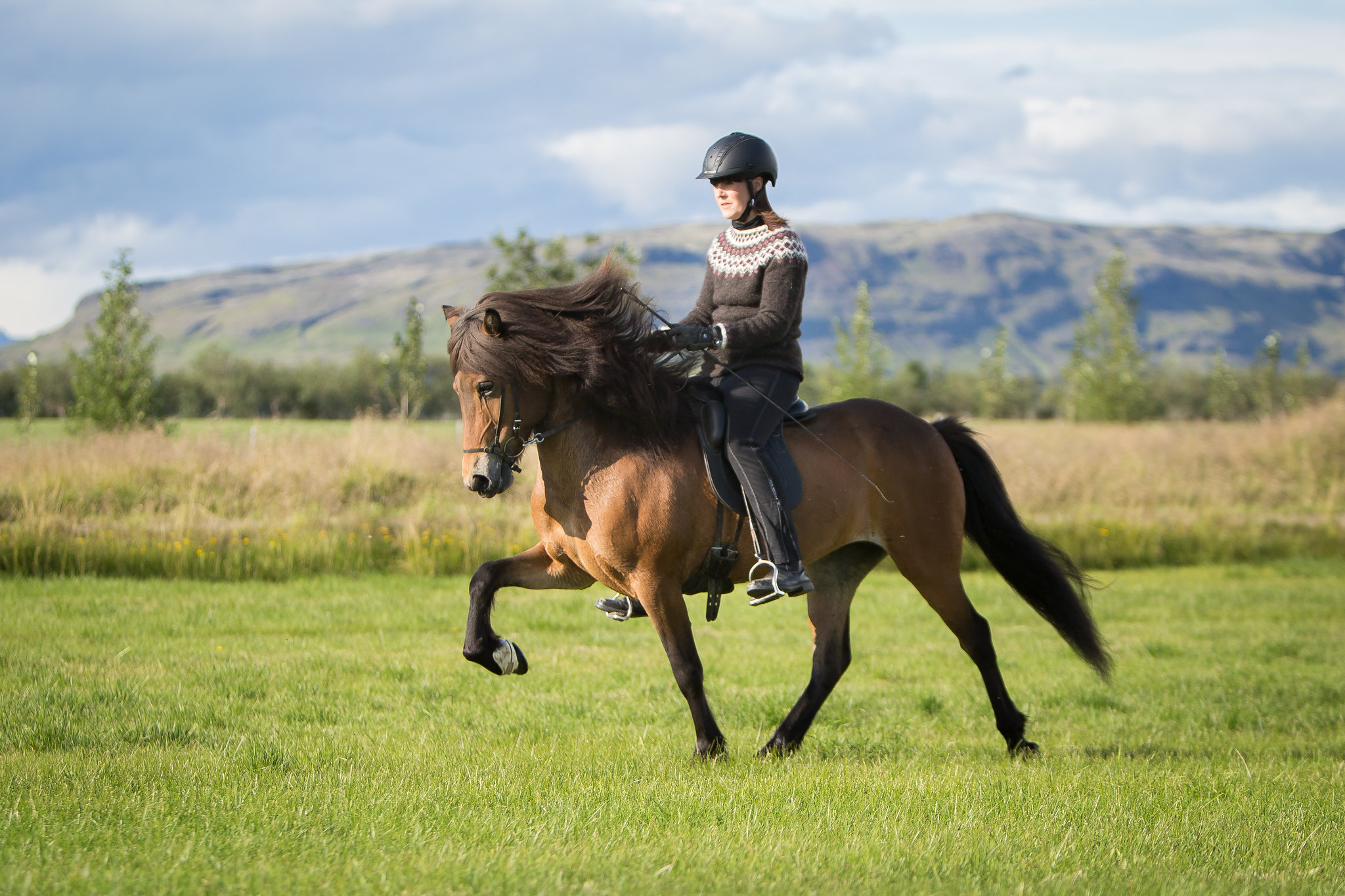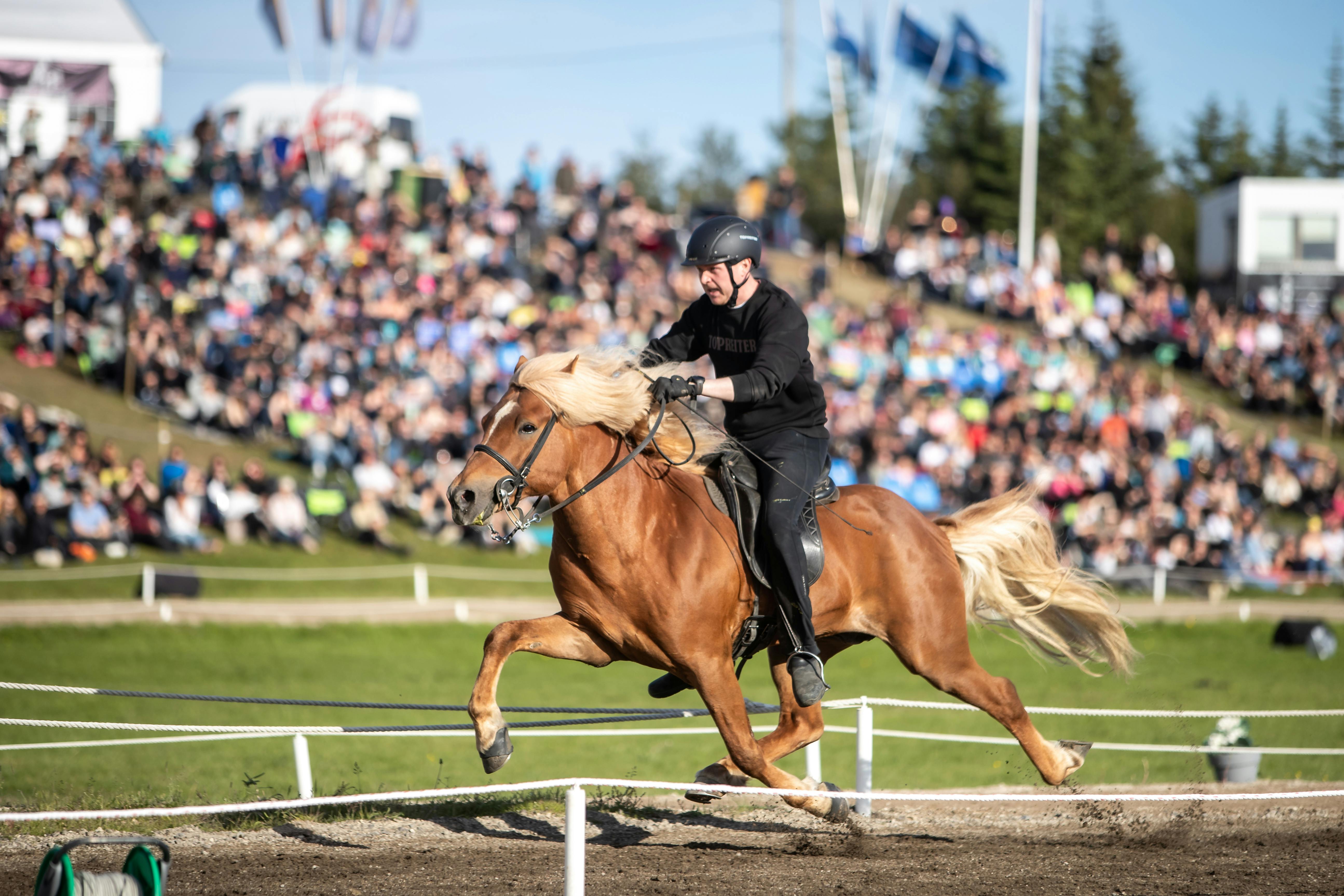
Gallop / Photo Louisa Hackl
The five gaits
The horses of Iceland are a so-called gaited horse breed. This means that most Icelandic horses have two extra gaits to offer besides walk, trot and canter/gallop. All horse breeds have these three natural gaits and can perform them without training. The extra gaits that set the Icelandic horse apart from other breeds are called tölt and flying pace.
Natural gaits
Tölt and flying pace are natural and new-born foals frequently show them right from the start. Most Icelandic horses are five-gaited, meaning they possess all five gaits, while some are considered four-gaited, and lack the flying pace.
A genetic variation found in Icelandic horses allows for lateral movement in horses. Five-gaited Icelandic horses always inherit this mutation from both parents. Four-gaited horses, however, can have three different genotypes of this gene.
You can learn more about mutations in gene DMRT3 here here
Tölt

Tölt / Photo: Liga Liepina
Tölt is the four-beat lateral gait, that the breed is best known for. The horse’s hind legs should move well under the body and carry more of the weight than the front end, allowing the front to rise and be free and loose. Tölt is very smooth to ride since the horse always has one or two hooves on the ground: there is no suspension phase between strides, as is the case in trot or canter. Tölt can be ridden very slowly and up to a very fast speed, depending on the horse and its training level.
Flying pace

Flying pace / Photo: Carolin Giese
Flying pace is often called the "fifth gear" and is a two-beat lateral gait with a suspension phase. Flying pace is ridden very fast and over short distances. It is sometimes used for racing over 100 to 250 meters. Not all Icelandic horses can pace but those that do are often considered the best of the breed.
More
A very extensive guide about the gaits of the Icelandic horse has been made. You can read it here
Below is a video showing the five gaits of the Icelandic horse with moments in slow-motion.